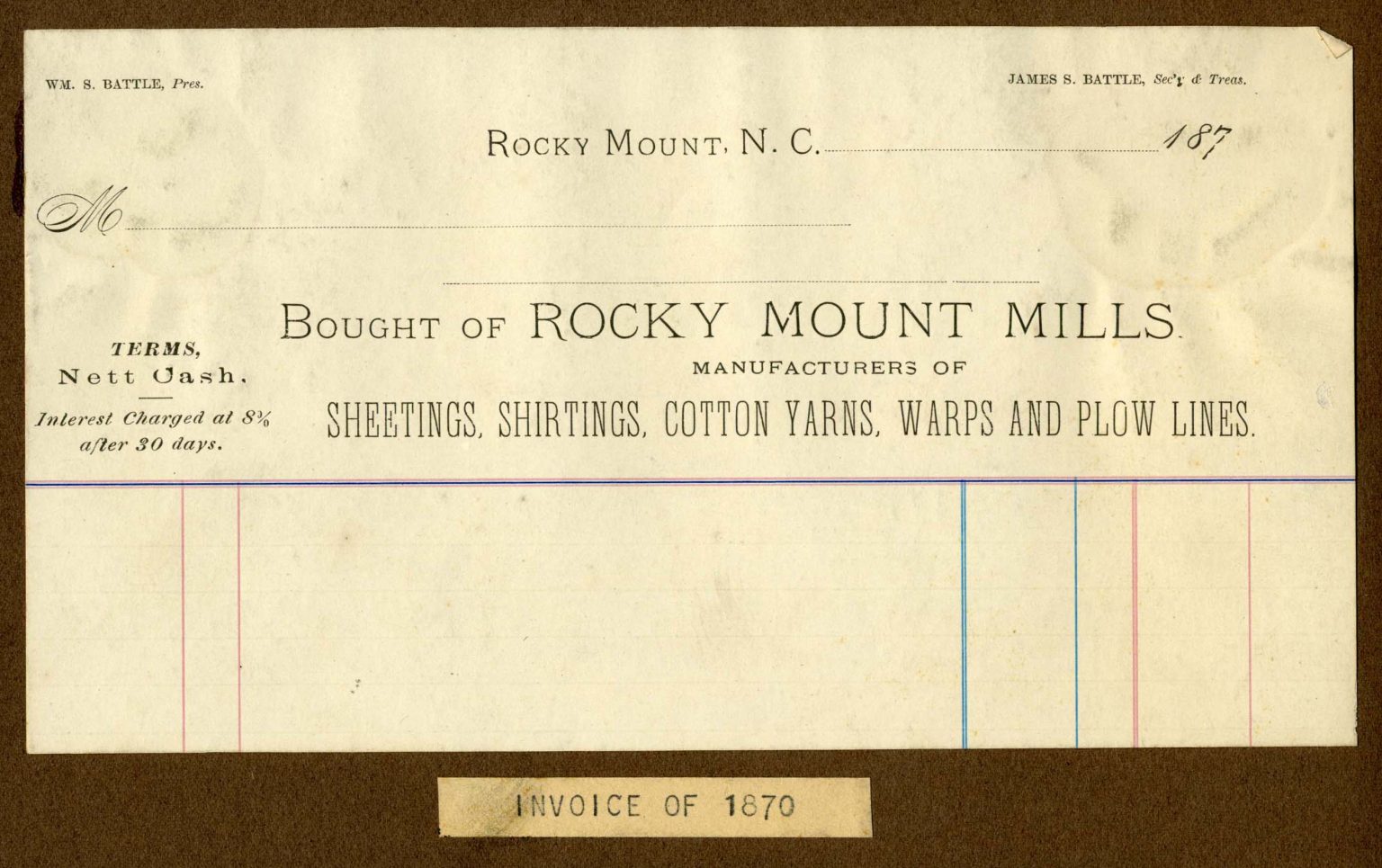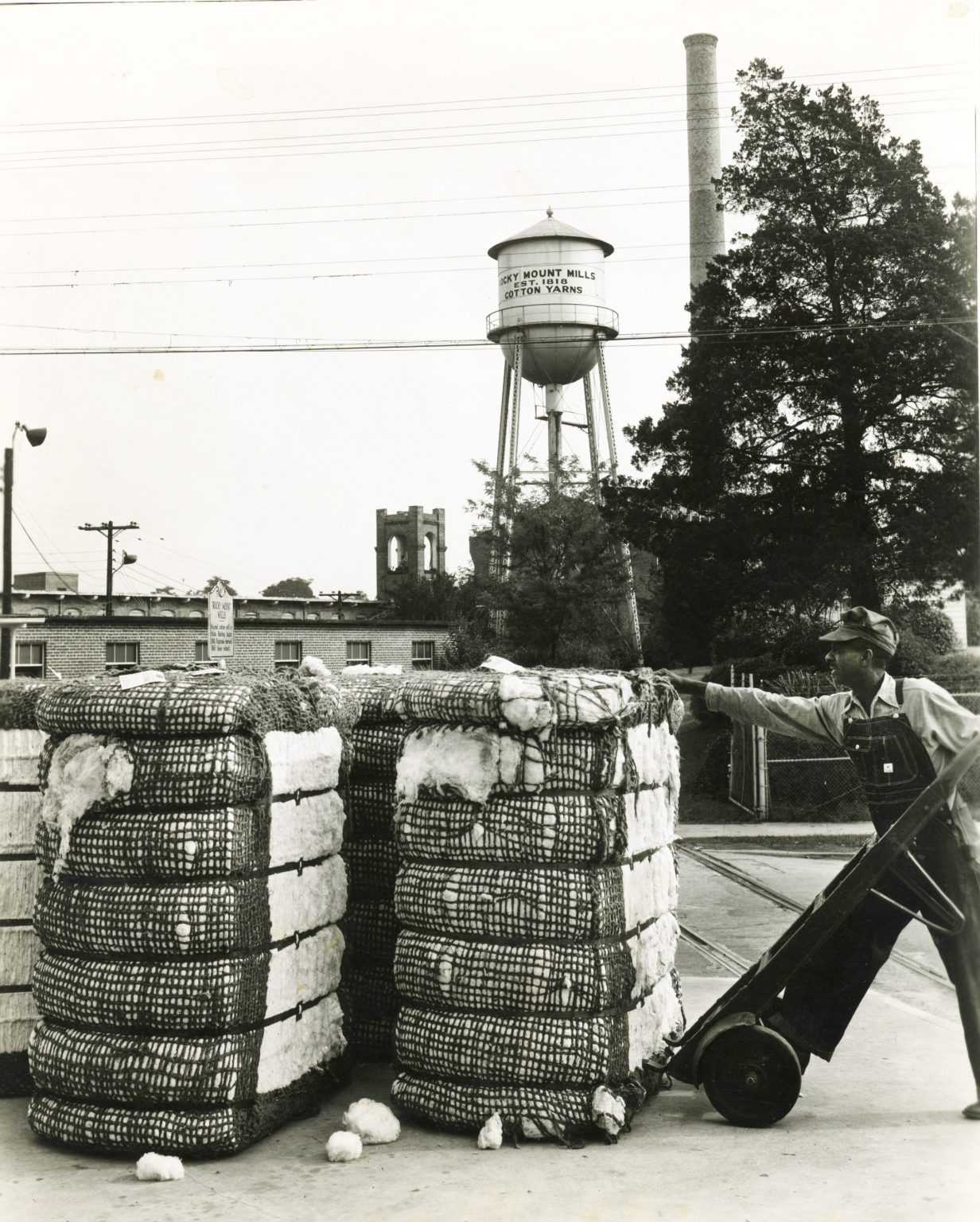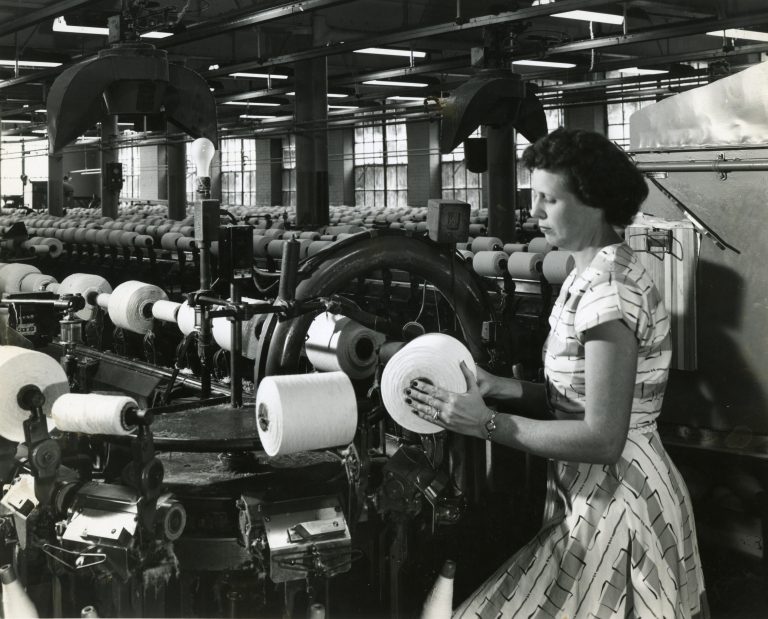
When North Carolina’s second oldest textile mill was given new life through a renovation by Capitol Broadcasting Company (CBC), development manager Evan Covington-Chavez felt that the mill’s success should be gauged not merely in economic terms but also by its social impact on the community. Having learned from CBC’s adaptive reuse of the American Tobacco Campus in Durham, NC, she felt it was imperative that the renovated Rocky Mount Mills keep alive the stories of the people who worked at the mill and lived in its mill village.
In the fall of 2016, Covington-Chavez asked The University of North Carolina at Chapel Hill’s Community Histories Workshop (CHW) to become involved. Funded by a gift from CBC and a grant from the National Historical Publications and Records Commission of the National Archives, CHW went to work.
“This was an opportunity to work with one of the most visionary adaptive reuse developers in the region and to help change the way an economically-disadvantaged community understood not only their history and future, but the way archives, scholars, developers and cultural heritage organizations work,” said CHW faculty co-director Bobby Allen, professor of American studies at UNC-Chapel Hill.
A place containing hundreds of years of history

For more than 200 years, the 60-acre site of Rocky Mount Mills has been a defining feature of the community’s natural and built environment. The site has been a resource for American Indians and early European settlers, a site of industrial slave labor, a nexus of plantation cotton production, one of the largest textile operations in the state, a racially segregated mill community, the center of a way of life for thousands of white families over many generations, the site of an important civil rights victory and, since 1996, a shuttered reminder of the collapse of the state’s most important industry for more than a century.
“The mill’s modern history is an example of social patterns common in mill communities,” explained Allen. “Under the long ownership by the Battle family, the mill was at the center of economic, social and cultural life for generations of white—and later, African American—residents. By the 1920s, the mill operated a community center, park, laundry, school and movie theater for its white employees, and provided electricity, water and sewer to the village.”
Adaptive reuse as a catalyst for community history
CHW was eager to demonstrate how multiple voices might engage in new ways with different types of historical records – and expand the concept of a “community archive.”
CHW’s team of faculty, staff, and graduate and undergraduate students collaborated with Rocky Mount’s Braswell Memorial Library to pilot a “history harvest” whereby community members brought family memorabilia—photographs, letters and even home movies—to the library’s event space. The materials were digitized and added to the new archive.
Through a partnership with the UNC Southern Historical Collection, CHW created a shared graduate research fellow position. The first holder of this position, Lucas Kelley, reviewed 33,000 items from the Rocky Mount Mills Papers, 10,000 items from the Battle Family Papers and 450,000 items from the Charles Killebrew Photographic Collection. CHW also teamed up with the UNC Digital Innovation Lab and UNC Libraries, among many others.
Creation of a digital “home” for the project

After three year’s work on the project, CHW developed Digital Rocky Mount Mills, a website with resources and information for those interested in the mill’s history, the North Carolina textile industry, K-12 pedagogy, African American genealogy, oral history and memory, historic preservation and economic development.
The site includes:
- Digital Rocky Mount Mills Archive: a repository of images reflecting the history of the mill and the wider community.
- Resource-Based History of Rocky Mount: A seven-part narrative history researched and written by CHW Project Manager Nicole Coscolluela, Elijah Gaddis (CHW Co-Director), Lucas Kelley and Sierra Dunne (Undergraduate Research Fellow).
- Oral Histories: Twenty digitally recorded, transcribed and edited interviews about life in the mill village, working conditions, the struggle for civil rights and the decline of the textile industry and closure of the mill in 1996.
- Closing Stories Video: CHW Undergraduate Fellow Morgan Vickers produced a brief documentary focusing on the role of African Americans, particularly during integration.
- Slave Genealogy Resources: Southern Historical Collection staff member Bernetiae Reed did extensive research on the history and genealogy of enslaved people owned by the Battle family.
- K-12 Resources: CHW partnered with UNC’s Carolina K-12 to produce a curriculum development project and held a full-day workshop at Braswell Memorial Library for area teachers. The site hosts 11 lesson plans and learning activities gathered by Renny Taylor, a Rocky Mount-area teacher.
- 1939 “Home Movie”: In 1939, mill superintendent M.G. Frye made an 8mm film of various people and places at the mill and mill village.
- Pinboard Visualization: Kelley designed a visualization of sample material from the archive for the UNC-developed platform.
On June 11, 2019, 20 invited adaptive reuse stakeholders from across North Carolina gathered at the newly renovated Rocky Mount Mills to address the broad question “How might the rehabilitative and adaptive reuse of iconic historic sites catalyze community history and archiving initiatives?” A video recording of the event is available here and a whitepaper on the findings was published to the Digital Rocky Mount Mills website.
Established in 2016, the Community Histories Workshop works with local communities to recover, preserve and share the memories, stories and materials that reflect the multi-layered histories of place. By helping to connect past to present, CHW believes that communities can envision more just, inclusive and democratic futures. Since July 1, 2017, CHW has been a program of the UNC Center for Urban and Regional Studies.
Courtesy of Community Histories Workshop and the Center for Urban and Regional Studies
